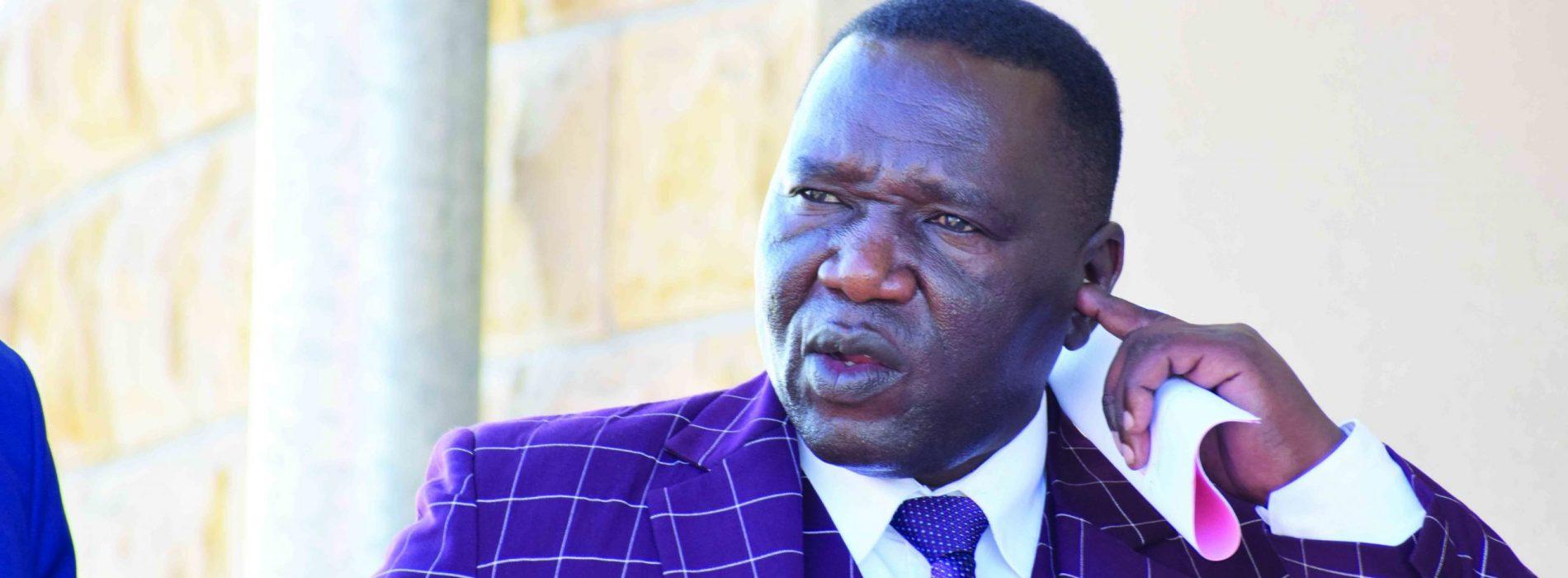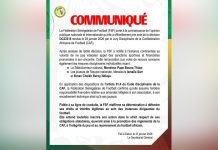Africa-Press – Lesotho. POLICE Minister Lepota Sekola counts two former prime ministers among his mentors. Today, he regards one of them, Pakalitha Mosisili, as a major political rival.
The other, Thomas Thabane, is still Sekola’s political leader and ally. Mosisili was once leader of both Sekola and Thabane. As Mosisisi’s chauffeur, Sekola said he would watch in awe as the then prime minister shrewdly plotted his political survival.
Sekola, 57, a former soldier, was part of Mosisili’s close security details. “I witnessed him always meticulously conducting his affairs and this conjured up my political consciousness. Mosisili was unaware that in a big way he was influencing me to join politics,” said Sekola.
Sekola is a staunch member of the All Basotho Convention (ABC) party, which has always been in a political tug-of-war with Mosisili’s Democratic Congress (DC) party even when they are in a coalition government.
“I learnt a lot from Mosisili ever since I joined his security team as a soldier from 1997 to 2002. I liked it and decided to follow his steps,” said the Makhaleng MP. However, Sekola did not join Mosisili’s party after leaving the army despite secretly studying the man’s political tactics.
Instead, he joined the ABC as an ordinary card carrying member and claims that he does not plan to stay for too long in politics as he is planning to retire after completing his second term as an MP.
“But my retirement will depend on what my followers want,” said Sekola, who is serving his first term in parliament.
“If they still trust me to lead then I won’t just leave like that.
”
He swore never to defect to another political party.
“If it gets to that then, I will know my time is up. I am not going to be a political prostitute. ” Sekola joined the Lesotho Defence Force (LDF) after completing Form E at St John High School.
“I never thought I would be a politician or even a minister,” he said, adding that he was shocked when Prime Minister Moeketsi Majoro appointed him a minister.
He described his current job as “challenging” but said men and women in uniform braved bigger challenges in their fight against criminality. He identified being deployed to stations far away from the family as one of the biggest challenges faced by police officers.
“A human being is a human being. When they are placed far away from their spouses and nature takes control they end up attached to their lovers,” he said.
Another pressing issue is the growing spate of killings of police officers countrywide. He also says the killing of police officers and the widespread murders countrywide are worrying.
“It’s worrying, it’s saddening and it causes emotional numbness,” said the minister, who has been in his current role for five months.
He said he learnt during his tours of crime scenes that police killings were partly a result of secret love affairs between the police and people in the communities they serve.
Others are linked to gangs, he said, noting that some officers are allegedly involved in famo music gangs. As a result, they sometimes attract the fatal wrath of rival gangs.
Other police officers, he said, are killed by relatives and friends of people they would have tortured to death in holding cells. He says the police need counseling considering the gruesome nature of the cases they encounter.
“I am still working towards addressing this issue,” he said, referring to a Mokhotlong case where the police are having sleepless nights after the killing of their colleagues.
He said the freeing of suspects of heinous crimes on bail by the courts was another challenge in the fight against crime. “Our officers still make arrests but the suspects get bail in less than a week and start roaming the streets even before victims can heal,” he lamented.
“And instead of the culprits showing remorse, they go on to commit more crimes knowing that it is easy to get bail. This leads to angry societies where people can resort to taking the law into their own hands,” said Sekola.
He suggested amendments to the law to impose harsher penalties to deter people from committing crimes such as rape and murder. “Punishment should be harsh to make perpetrators think twice before committing such crimes.
It shouldn’t be harsh on paper only but there should be implementation, something our justice system lacks. ”
He warned police officers involved in criminality that they would be punished.
“Just yesterday, I received a report on suspended officers accused of torturing suspects to death.
And we will do our best for justice to prevail. I don’t need such officers,” Sekola thundered. “We are already working on bringing back the death penalty for murderers.
”
On police officers aligned to famo gangs, Sekola said while law enforcement agents have a right to listen to music of their choice, they have to stay away from factional wars.
“It destroys the image of the police,” he said. He also warned the police against using their power to drive political agendas.
“Officers shouldn’t show which political party they support. We need to have a law prohibiting such conduct. I am in talks with the relevant minister about this,” he said. Infiltration of the police by political actors “has become a big problem”.
“They get too excited for bribes regardless of their obligation to be impartial,” he said, accusing politicians of dangling money to lure police officers to do their bidding.
“I am working hard to root out this practice. Politicians should leave the police alone because their involvement destroys police operations,” he said.
Sekola said it becomes difficult for the police to reject undue demands from a ruling politician if they have all along allowed themselves to be politically impartial.
“When the politician finally wins elections it becomes difficult to reject their control if in the past the police entertained their political influence,” he said.
On the torture of suspects in detention, Sekola said a strategy was in the works to train police officers on methods to extract information from suspects without resorting to violence.
“There are other ways to get information from a suspect other than violation of their rights.
Suspects need to be interrogated, but the police should bear in mind that the suspects have rights too. ” Sekola said the training of police officers will be conducted with the help of Botswana.
The training, he said, “will remind the police who they are, their responsibilities and what’s expected of them”. He said the government has also invited the US Federal Bureau of Investigations (FBI) to help equip Lesotho with investigating techniques and other crime intelligence strategies.
He said inviting the FBI to train local law enforcement agents helped empower the police with skills on technological and investigations best practices.
“They focused mostly on CIDs and search operations of machines for the national criminal fingerprint database.
”
He said the US Embassy is sponsoring a diplomatic security visit for women police officers to support increased collaboration between Lesotho and South Africa on human trafficking for a month scheduled for early next year.
“I would like NGOs to tag along as well because preventing human trafficking is not just a job for the police. Collaboration between the police and independent individuals will help us to win this battle.
”
Sekola said the launch of the Standard Operating Procedures (SOP) and Referral Mechanism (NRM) for victims of human trafficking has empowered the police with skills and resources to do their job.
Sekola said he plans to meet his South African counterpart Bheki Cele soon to collaborate on how they can curb cross-border stock theft that is now a headache for both countries.
“Working collaboratively will help us succeed as we both feel the heat.
”
Lack of adequate resources is another challenge that can be solved by working in collaboration with wealthier countries, the minister said.
He lamented the lack of resources such as vehicles which have resulted in the police sometimes failing to attend to crime scenes timeously or even failing to prevent predictable crimes.
Sekola said over 100 police cars are grounded due to mechanical faults. “I have since noticed that the cars require minor repairs but because of the tedious government procurement processes the cars are not repaired on time,” he said.
“We have since agreed with the Chinese Embassy that they will help repair our cars,” he said, adding that “however, that tender will be given to a Chinese and not a Mosotho”.
Sekola said out of despair, some police officers dip their hands into their own pockets to buy spare parts for the cars they use at work so that they continue to give the public the required service.
For More News And Analysis About Lesotho Follow Africa-Press






